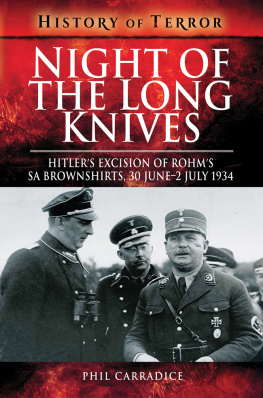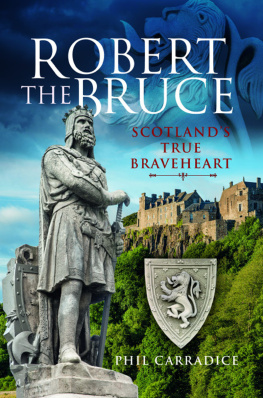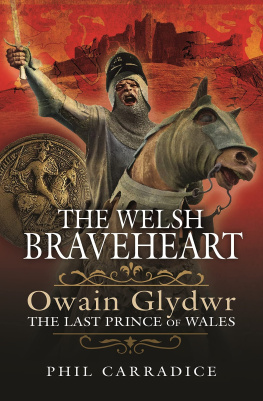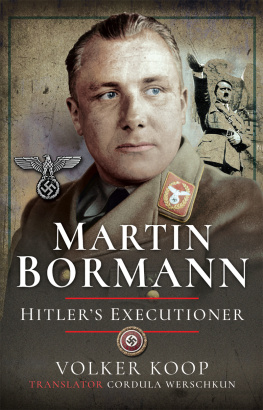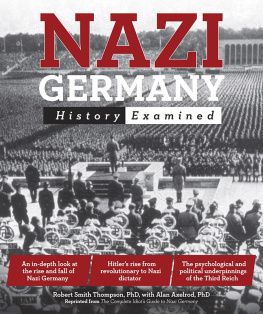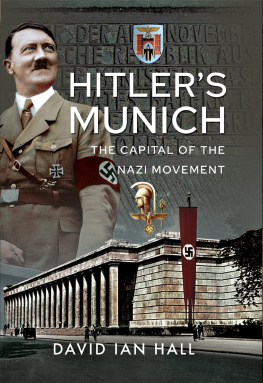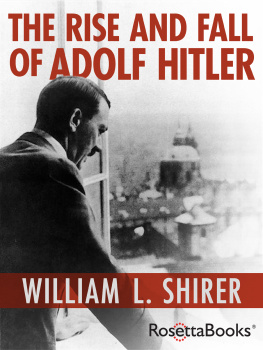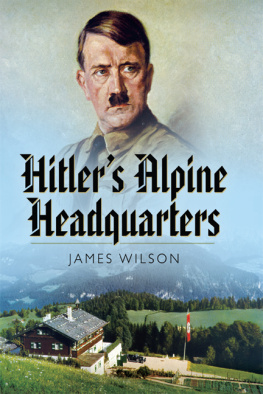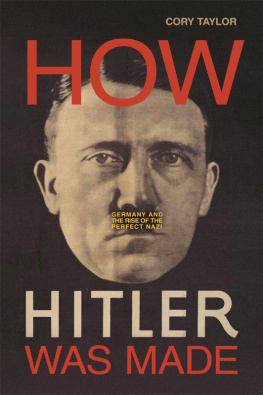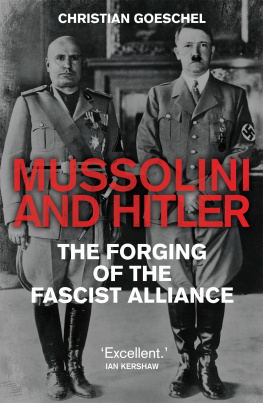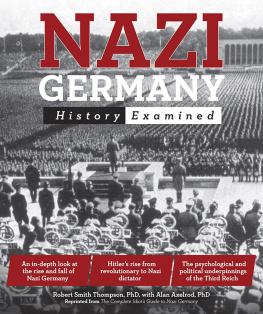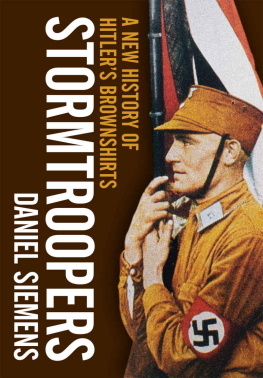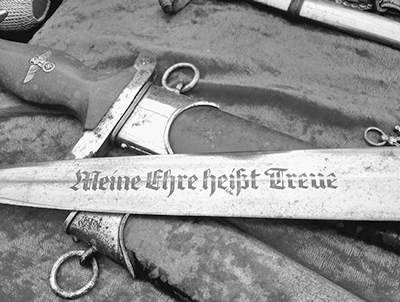Night of the Long Knives

NIGHT OF THE LONG KNIVES
HITLERS EXCISION OF RHMS SA BROWNSHIRTS 30 JUNE 2 JULY 1934
PHIL CARRADICE
Schutzstaffel (SS) knives: Loyalty is My Honour. (Photo Biso)
First published in Great Britain in 2018 by
PEN AND SWORD MILITARY
an imprint of
Pen and Sword Books Ltd
47 Church Street
Barnsley
South Yorkshire S70 2AS
Copyright Phil Carradice, 2018
ISBN 978 1 526728 93 7
eISBN 978 1 526728 94 4
Mobi ISBN 978 1 526728 95 1
The right of Phil Carradice to be identified as the author of this work has been asserted in accordance with the Copyright, Designs and Patents Act 1988.
A CIP record for this book is available from the British Library All rights reserved.
No part of this book may be reproduced or transmitted in any form or by any means, electronic or mechanical including photocopying, recording or by any information storage and retrieval system, without permission from the Publisher in writing.
Every reasonable effort has been made to trace copyright holders of material reproduced in this book, but if any have been inadvertently overlooked the publishers will be pleased to hear from them.
Pen & Sword Books Ltd incorporates the imprints of Pen & Sword
Archaeology, Atlas, Aviation, Battleground, Discovery, Family History, History, Maritime, Military, Naval, Politics, Railways, Select, Social History, Transport, True Crime, Claymore Press, Frontline Books, Leo Cooper, Praetorian Press, Remember When, Seaforth Publishing and Wharncliffe.
For a complete list of Pen and Sword titles please contact
Pen and Sword Books Limited
47 Church Street, Barnsley, South Yorkshire, S70 2AS, England
email:
website: www.pen-and-sword.co.uk
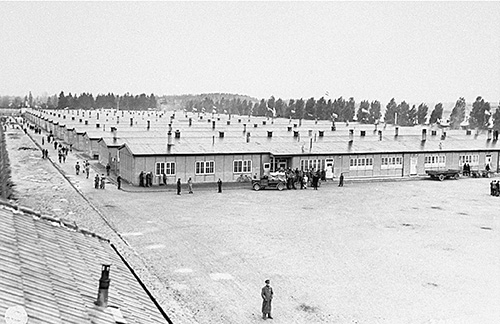
Dachau concentration camp, the final resting place for many SA victims, seen here after liberation in 1945. (U.S. Holocaust Museum)
INTRODUCTION
I ask you now, is any little thing like being damned eternally a satisfactory excuse for behaving like a complete rat?
Fritz Leiber
It is a sad but unmistakeable fact that Adolf Hitler, over seven decades since his diabolical regime came crashing down in flames, still retains the power to fascinate. Quite why this should be remains something of an enigma. Perhaps it is the depth of the mans evil, a stunning and bottomless cavern that glares up at you whenever you gaze in; perhaps it is the way millions bowed to his every word, worshipping and obeying without thought or regret; perhaps it is just that all evil resonates and when we look at it, safe from the comfort and security of our armchairs, we can heave a sigh of relief and then pass on to other things.
Bad has always been good or a good seller at least. Its the reason we remember Fagin, Bill Sykes and the Artful Dodger but can barely relate to wimpy Oliver Twist. Its why we delight in the activities of Jaws, Darth Vader, Count Dracula, Hannibal Lecter and so many morenot because they are particularly attractive but because they are so consummately bad. We might hope for some degree of redemption for them and that does, sometimes, occur. As they used to say in the old Wells Fargo TV series of the 1950s: Theres a little good in the worst of us, a little bad in the best. But really the vileness and villainies of those archetypal baddies are so all-consuming that they make us feel rather goodand safe.
Adolf Hitler fits that bill perfectly. And yet there remains an air of mystery about him and his followers. Can anybody really be that evil? Could things have been different if he had chosen a different route, a different path? There is no answer but it is all part of the fascination.
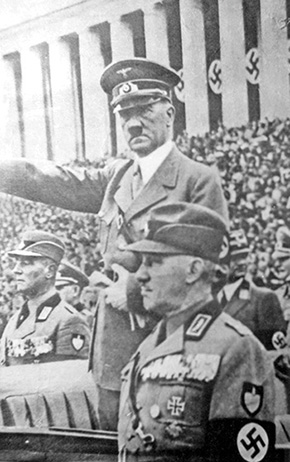
Adolf Hitler, already hell bent on destruction.
The Night of the Long Knives was a seminal moment for Hitler and the Nazis. Before that deadly weekend when Hitler destroyed the last vestiges of opposition to his regime, the Nazi Party had been comprised of thugs, vicious and violent thugs admittedly, but thugs all the same. They were men who lived by the fist and the jackboot without fear of reprisal. After the purge they were cold-blooded murderers who would stop at nothing to achieve their ends. As the 1930s progressed it was almost as if the demands of an obscene regime superseded the equally vile intentions of individuals. At its most basic level the aims and ideals of individuals were subsumed by the needs of the State.
Individuals still committed atrocities but they were approved, even directed, by the governmentin fact by Adolf Hitler. And all of the horrors of the Third Reich, the persecutions and the Holocaust, the terrible wars and the destruction, stem from Hitler and from that moment in the warm and unsuspecting early summer of 1934.
The underlying causes or motives behind the killing of several hundred potential opponents to Hitler were not just the needs of Germany or the Party; there was also a personal element for Germanys new dictator. The Night of the Long Knives was a watershed, a crucial moment when he stood poised between the pull of friendship and the desire for power, ultimate and absolute power which, as we know, corrupts absolutely. We also know which way Hitler chose to go.
There is only one purpose or aim behind studying history: to make sure that we do not make the same mistakes again. Sadly, we do not have to look far in this world to find governments and individuals who have not learned from their reading of history and continue to make the same old errors over and over again. We all of us have a duty, as strange and as abstract as it might seem, to ensure that people study history for the right reasons. If we can make that study interesting in the way that a story is interesting, holding us rapt and fascinated from beginning to end, then we have a much better chance of fulfilling that aim.
We should all read about this dire and dreadful weekend of murder and mayhem, viewing it as a terrible story at the start of an even more terrible period in human history. Asking any reader to enjoy the tale of murder and betrayal, the double dealing that makes up a large and significant part of the Night of the Long Knives, would be both facile and wrong. It would make us little better than the Nazis who committed the outrages in the first place. But that should not stop people learning from those dreadful events. It is, perhaps, not what Adolf Hitler would have wanted but, then, as Hitler and the Nazis eventually found out, we do not always get what we want in life.
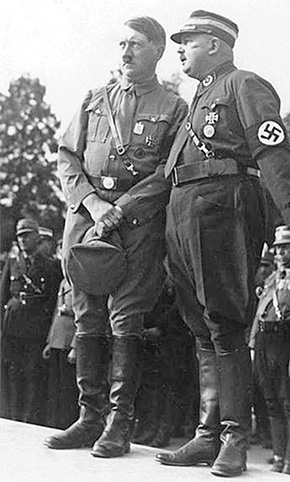
Introduction Hitler and Ernst Rhm, friends but also mortal enemies.
OVERTURE
In the game of golf there is an expression used to describe that infuriating moment when a ball hit across the green comes to rest, hovering on the lip of the hole. It is called a banana republic. In other words just one more revolution is all that is needed for the ball to topple forward and finish up at the bottom of the cup.

